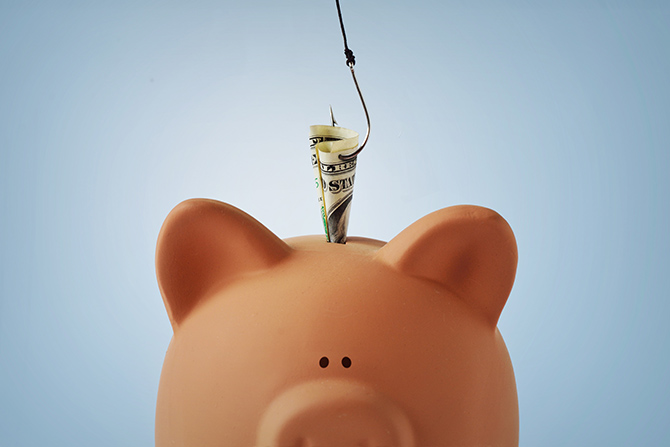Bankers constantly express concern about the epidemic of fraud. Customers are being defrauded through payment schemes, romance schemes and even basic check fraud, which is on the rise. CBA is working to provide you and your customers with the resources needed to combat the ever-increasing cost of fraud.
Despite a significant decline in consumers’ use of checks, check fraud is on the rise, and criminals are increasingly targeting the U.S. mail to commit check fraud. Criminals steal paper checks sent through the mail. In speaking with law enforcement, there is speculation that criminals have infiltrated the post office, making stealing checks much easier. They use chemicals to “wash” the check in order to change the amount and the payee. This has become very organized. CBA heard stories of homeless individuals being paid to cash checks fraudulently made out to them. In 2022, financial institutions filed more than 500,000 suspicious activity reports to FinCEN related to check fraud, a 130% increase over check-fraud-related SARs filed in 2020.
Skimming devices are still being used at ATMs. Once a customer’s card data and PIN are stolen, thieves can then use the data to make a counterfeit card and withdraw money from the customer’s bank account. Migration to EMV-enabled chip cards and ATMs has helped reduce skimming. Most U.S. ATMs are EMV capable, which fights this type of fraud by creating a one-time code for each transaction, limiting the ability of a thief to steal and replicate data. While this has reduced skimming, we now see fraudsters resorting to new tactics — like “shimming” — to steal data. In this fraud, criminals insert a device into the ATM’s card reader to intercept or manipulate the chip data.
Every day, thousands of people fall for fraudulent emails, texts and calls from scammers pretending to be banks. These are commonly referred to as phishing scams. The communication is designed to trick individuals into providing confidential information. Victims of phishing scams can lose hundreds or even thousands of dollars. The FTC estimates that consumers lost $8.8 billion to phishing schemes and other fraud in 2022. Scammers are taking advantage of the expanded use of digital banking platforms and tricking consumers into giving up their personal and financial information. Consumer education is the most powerful weapon in the fight against phishing.
The best estimate of total fraud comes from filed SARs. The total number of identity-related SARs filed was $351 billion. CBA is working to get you and your customers the resources needed to combat the ever-increasing cost of fraud.
CBA and our counterparts across the U.S. and the American Bankers Association are lobbying for the FCC to crack down on text spoofing/fraud schemes by establishing a database of customer-reported spam text and increasing enforcement. The industry is pushing for a White House Office of Fraud and Scam Prevention. A national check-verification system is being explored. There are numerous anti-fraud campaigns to educate customers: #BanksNeverAskThat and #PracticeSafeChecks.
The American Bankers Association created a fraud directory. This is an expanded resource that helps banks connect with other institutions to resolve warranty breach claims for checks as well as claims for unauthorized and/or fraudulent transfers for wires, ACH, RTP or FedNow. The directory of fraud contacts is searchable by bank name, city, state or FDIC number. Access to the database is only available to banks that provide their fraud contacts. ABA members and nonmember banks are invited to participate. The more institutions that get involved, the more helpful the directory will be for the industry.
Several years ago, CBA ran legislation to create the Colorado Fraud Investigators Unit (CFI), which is housed within the Colorado Bureau of Investigation (CBI). Their focus is identity theft, fraud and cybercrime. CFI has the ability to aggregate many crimes committed in multiple jurisdictions. This is extremely helpful where local law enforcement may not have the resources needed to aggregate multiple small-dollar cases.
Resources
CBI 24-Hour Identity Theft & Fraud Hotline
(855) 443-3489
CBI Victim Assistance Program (English and Spanish)
(303) 239-4242
cbi.stopidtheft@state.co.us
cbi.victimsupport@state.co.us
FBI Denver Division
(303) 629-7171
The FBI can be extremely helpful at stopping or recovering funds fraudulently wired if promptly reported through their Internet Crime Complaint Center. File a complaint with the FBI’s Internet Crime Complaint Center (IC3) at www.ic3.gov.
Local law enforcement also has resources for banks and bank customers.
CBA is here to help; do not hesitate to reach out.








